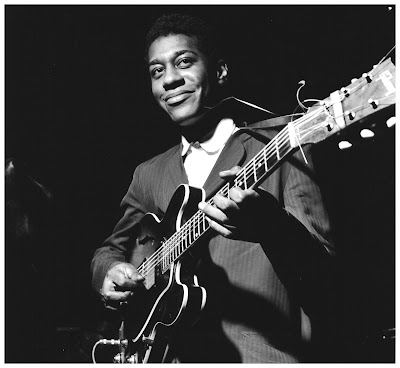1. The Sinceres – ‘Please Don’t Cheat On Me’ (1961)
Prolonged exposure to doowop can make me feel like I’m
trapped in an episode of Happy Days with only Ralph and Potsie as company but it’s
worth slinging a dime in Arnold’s jukebox occasionally.
2. The Emperor’s – ‘I Want My Woman’ (1965)
The Emperor’s what? Sore throat? This growling garage
prototype stalks menacingly for two and half minutes while said woman presumably
hides in a cave.
3. The Grass Roots – ‘Heaven Knows’ (1969)
Difficult to not sing parts of the Box Tops’ ‘Soul Deep’
through this equally infectious ray of sunshine.
4. Manfred Mann Chapter Three – ‘One Way Glass’ (1969)
Anyone encountering Manfred Mann Chapter Three on a night
out expecting to hear ‘Pretty Flamingo’ would’ve been in a rude awakening. Mann
and Mike Hugg led this line-up down a progressive jazz route and there are
plenty of freaky, squalling moments on their eponymous debut LP. The trippy,
horn laden ‘One Way Glass’ isn’t at the extreme end and makes for an ideal
psych club tune. Both their albums worth investigating.
5. Grant Green – ‘Jan Jan’ (1971)
Blue Note had so many Grant Green recordings they ended up
with a backlog of stuff that either never got released or had to wait many
years, as in the case of Live At Club
Mozambique. Recorded in January 1971, but only issued in 2006, Houston
Person (tenor), Clarence Thomas (tenor/soprano), Ronnie Foster (organ) and
Idris Muhammad (drums) join guitarist Green (pictured above) for a thrilling club set.
6. Richard Caiton – ‘I Like To Get Near You’ (1969)
Sweeping soul out of New Orleans from local lad Caiton.
7. Frederick Hymes III – ‘Time Ain’t Gonna Do Me No Favor’ (1970)
Only available from Hymes at his gigs this super-collectable 45 is a gem. ‘Tighten Up’ style guitars, funky drumming, punchy horns and a fantastic vocal.
8. El Michels Affair featuring The Shacks – ‘Strange Boy’
(2016)
Wow! Love this collaboration between two acts on New
York’s Big Crown Records: the instrumental funk band El Michels Affair and the
breathy boy-girl duo The Shacks. Absolutely gorgeous and more than a touch of
Camera Obscura about it.
9. Paul Orwell – ‘Loaded Street Syrup’ (2017)
I presume the four tracks on Paul Orwell Presents Hard Shakes were leftovers from Paul’s Organized Blues phase. Like the tracks
on that LP these are short, in-your-face, fuzz and Farfisa instrumental nibbles.
All good fun but merely a tasty snack before the more substantial offerings of
Paul’s The Shoots project – coming soon - and his second ‘proper’ solo album. Trust
me, I’ve had sneaky preview, these are gonna be the real deal.
10. Pasapogas Hammond Quartet – ‘Modern Hall’ (2017)
Pasapogas Hammond Quartet are Ángel Soriano - Hammond Organ, Jero Colomina - guitar, Santiago Vilella - drums, Riard Chumillas - tenor sax and flute, J.M. Maldo – percussion, and what these Spaniards lack in arithmetic they make up for in slick soul-jazz. With three very stylish EPs to their name (check the artwork), Modern Hall the lead track from their latest. Fans of JTQ and even early Style Council form a queue.






